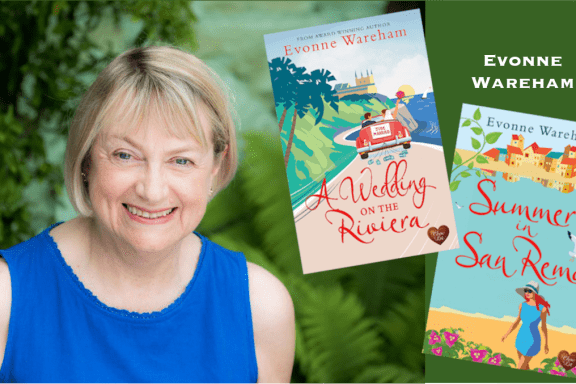 The second (afternoon) session of the London Book Fair Masterclasses was How to Write for Screen: Film & TV. Again, it was a panel discussion, this time chaired by Julian Friedmann (Agent, Blake Friedmann) with Paul Ashton (Producer, BBC Writersroom), Craig Batty (Author & Senior Lecturer in Screenwriting, Bournemouth University) and David Nicholls (Screenwriter) on the panel.
The second (afternoon) session of the London Book Fair Masterclasses was How to Write for Screen: Film & TV. Again, it was a panel discussion, this time chaired by Julian Friedmann (Agent, Blake Friedmann) with Paul Ashton (Producer, BBC Writersroom), Craig Batty (Author & Senior Lecturer in Screenwriting, Bournemouth University) and David Nicholls (Screenwriter) on the panel.
Having met up with a Twitter pal, Brigid Coady, after the morning session, I decided to live-tweet the afternoon session, rather than jot down notes as I’d done for the morning session. (Brigid had live-tweeted the morning’s How to Get Published session using the #LBF10 hashtag.)
This is a collection of my tweets from the afternoon session, Sadly, I can’t type on my iTouch as quickly as I would like so some of these have been amended to help them make a bit more sense. Anyway, here are the highlights as I saw them:
- Julian Friedmann (JF) opened the Screenwriting Masterclass quoting from & recommending Steven Bochco’s book Death by Hollywood
- JF said there was no significant increase in high quality scripts being seen by agents. Still a need for in-house training by outfits such as BBC Academy
- We’ve lost 600 – 700 hours drama programming over the years. A lot of successful writers working today are untrained academically.
- Far more radio plays so possibly these are a better route into industry than writing for TV, although you should also consider stage plays, novels, blogs & social networking, internships
- If you want to write scripts you should be reading them rather than how-to books – read 2-4 a week and you’ll absorb them and what works or doesn’t about them
- David Nicholls (DN) started writing a sitcom at BBC & then edited a screenplay which was made into his first feature. Worked as script editor for ITV
- DN then got job writing for Cold Feet when it was doing well with 11 million viewers. He wrote Rescue Me off the back of that but found writing for TV brutal, disheartening work
- Most TV dramas fail so it is vital to do other work in order to stay sane – theatre, radio & film + adaptations. Mix it all up
- Now Craig Batty is up. Went into scriptwriting for the glamour & name in lights! 😉
- CB wrote for himself, went to Uni and studied for an MA, then wrote for Neighbours while on work experience while studying, came back to Britain and got PT work lecturing, then wrote articles on writing before doing his PHD
- JF said that one writer he knows turns her script over to writing class to critique. Panel said that script editors/commissioning editors/producers/agents all want to give input on your manuscript. Let them but remember that it is your script and you make the final decision on what advice you take on board.
- Whether writing a novel or script, editing and revision doesn’t happen often enough or for long enough You need to seek out constructive criticism of your work-in-progress.
- Present yourself as someone who looks for criticism in order to improve as a writer but also try and understand why the changes are being asked for. Ask questions of those offering you their critique.
- Writers – make your intention clear. What did you set out to say/achieve? Makes it easier for agent to pitch your idea or script/screenplay if both you and they are clear and agreed upon this.
- Questions from the floor: what about the use of consultancies? Can be useful and constructive but check their credentials first, especially if they’re online. Who’ve they worked with? Why are you going to them? What’s your purpose in seeking them out? It has to be for more than a pat on the back and to be told that you’re a good writer.
- Feedback from other writers through online or face-to-face writing groups might be better than going to a consultancy. Check out blogs (e.g. Lucy Hay’s) to see what those offering crits have already done/said & do your research
- Consider going on a script factory course which will teach you to properly read scripts. Until you can do this, it’s arguable whether or not you’ll be able to write them properly.
- Look for someone who will read your script and come back with 3 big questions that get to the heart of your script rather than go through every tiny detail of the script or attempt to re-write their own version of it
- Reading scripts hones your gut instinct about what makes a script work so that you can then implement this in your own work.
- David Nicholls: remember that a great screenplay is nothing more than a set of instructions set out well.
- Should we start writing for corporate films? Try and secure any gig that you can get – you’ll be able to demonstrate that you can work professionally to deadlines
- How concerned should we be about writing for the Market? Read the Trades like Screen International, get a website, a blog, tweet, Facebook page, sign up to and subscribe to Twelve Point
- This is a great time for writers to be out there networking and inform themselves about the market – you can’t afford to be self-indulgent and stay indoors in a bubble writing
- Getting to know your market is not the same as second-guessing what is needed, what will sell. What is always wanted is great writing. Quality writing. Irrespective of what is trending if only because there will be something else trending by the time you’ve written and pitched and sold what it is that you’re writing.
- Projects which have worked best have been ones that I have passionate about and were of personal interest or of a personal nature to me. – David Nicholls
- The panel then discussed the pros and cons of social networking for writers – it was generally agreed to be and seen as a good way of marketing oneself and one’s product and also as a good source of industry news/gossip
- There are no trends as such but it is always useful to look at which independent producers are getting access to the BBC, for example. However, saying that, children’s programming and low budget films are good at the moment and always looking for new talent.
- The UK Film Council, EU Media Agency, and the Regional Screen Agency in your area all offer financial help and/or information and support to writers
As with the morning session, the key message from this afternoon session was that the industry is always on the look-out for new talent and quality writing, with the emphasis very much on quality. It is not enough simply to write and dash off an idea or a script and send it off. It needs to be polished and only sent off when it is the best that you can possibly make it. Then, there is a chance that you, too, will make it.
Part 1: My write-up of the morning Masterclass session, How to Get Published, is here.


Leave a comment